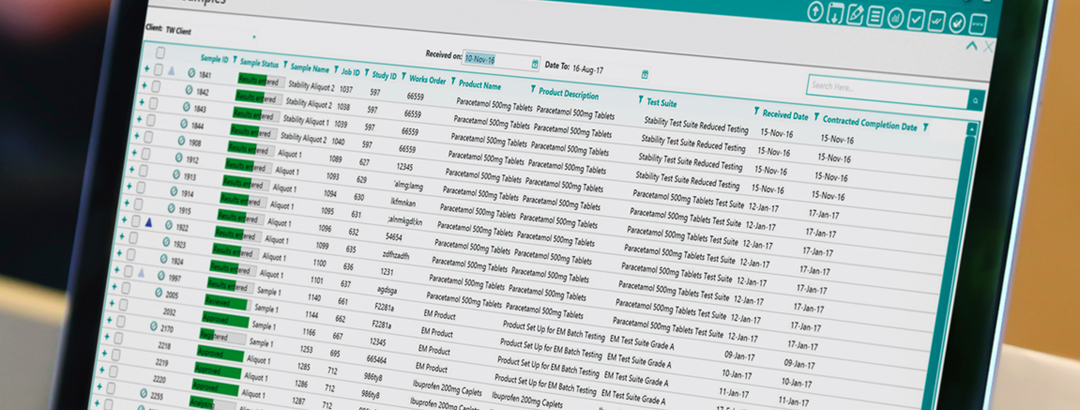The pharmaceutical industry is highly regulated to ensure that the quality, efficacy and safety of medicines delivered to patients is maintained. When pharma companies
LabHQ's Best Features for Pharma
by Sophie Blackburn posted in LIMS, Data Management, Process Improvement, best practices, process mapping, deployment projects, Laboratory Efficiency, Laboratory Management, TipsWhat to Do When Your LIMS is No Longer Supported
by Theresa Webster posted in LIMS, Data Management, Process Improvement, best practices, process mapping, deployment projects, Laboratory Efficiency, Laboratory Management, TipsAs a laboratory that has already made the leap from paper to LIMS, moving away from LIMS would be a step backwards, and certainly wouldn’t be the favourable option if your LIMS is no longer supported. What do you do when your LIMS supplier has discontinued service? In this blog, we go through the key areas to consider, so you don’t have to roll back to paper-based systems.
Back to the Future - Introducing Modern Practices with LIMS for Your Lab
by Theresa Webster posted in LIMS, best practices, Laboratory Efficiency, Laboratory Management, TipsHave you ever stepped into a lab, and it looks like it was lost in time? No computers. Data recorded in paper notebooks. Equipment over twenty years old. If this sounds like your lab, and you’re ready to bring it back to the future, here are a few modern practices that LIMS can help you upgrade to.
Does Equipment Integration Really Save You Time?
by Theresa Webster posted in LIMS, Data Management, best practices, Laboratory Management, TipsA lot of laboratories that look to implement LIMS often enquire about equipment and third-party software integration. With an aim to go completely paperless, it is beneficial
Communication Critical - Where LIMS Helps on Information Delivery
by Theresa Webster posted in LIMS, Data Management, best practices, Laboratory Management, TipsCommunication is a key part of working as a team, delivering on business objectives, and meeting customer expectations. When you’re working in a laboratory, there are many opportunities to communicate effectively to avoid disappointment.
Are Paper and Excel Limiting Your Laboratory Capabilities?
by Sophie Blackburn posted in LIMS, Data Management, Data Integrity, best practices, Quality, Laboratory Management, TipsIt’s a question I ask daily; how are you currently managing your QC data?
Have You Seen the Latest Update of ISO/IEC 17025?
by Phil Saunders posted in LIMS, Data Management, Project Management, Process Improvement, QC Laboratory Data Management, Quality, Laboratory Efficiency, Laboratory Management, Laboratory Team, Tips, Workload ManagementLaboratories look to gain ISO 17025 accreditation as recognition of their competence and abilities, to help them improve and monitor their operational processes, and to satisfy customer requirements. At the end of 2017, an update to the ISO 17025 standard was issued. In this blog, we give you
Why Audit Trails Are a Great Feature of LIMS
by Theresa Webster posted in LIMS, Data Management, Data Integrity, QC Laboratory Data Management, QualityAudit trails are a common LIMS feature required for regulated laboratories, but they are generally a useful tool for any laboratory – regulated or not. For those of you who are new to LIMS,
Is Your LIMS Good Enough? Where LIMS Adds the Most Value for Labs
by Theresa Webster posted in LIMS, Data Management, Data Integrity, Process Improvement, process mapping, QC Laboratory Data Management, Quality
When you’re working in a fast-paced environment such as a laboratory, you might not have the time to implement improved ways of working. You may be using an existing LIMS, and are used to the workarounds and quirks of the system.
The Dont's of LIMS Project Management
by Vanessa Ford posted in LIMS, Project Management, deployment projectsLast week we issued our blog on the Do's of LIMS Project Management, and now that you're familiar with best practice, you can find here what we highlighted as NOT to do when managing a LIMS project.














